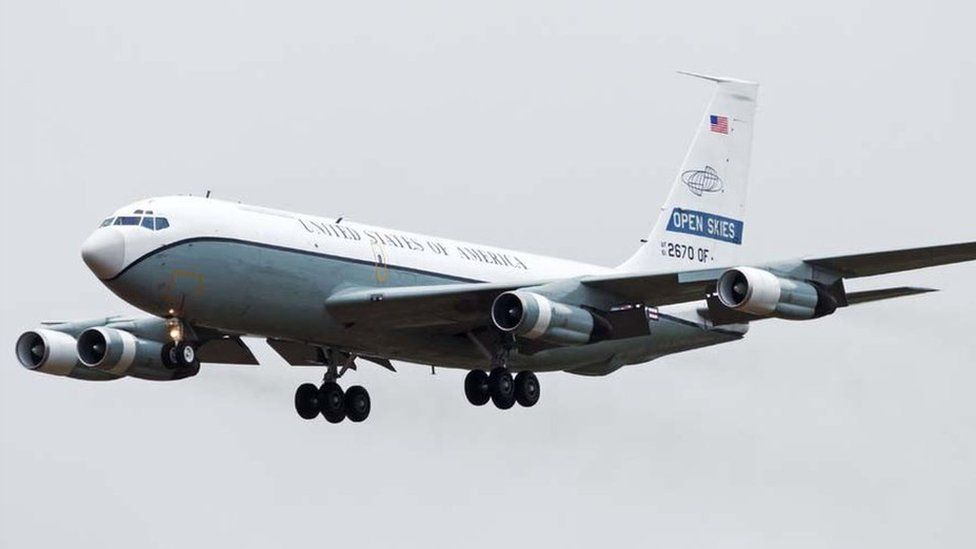The Blame Game
"It certainly does not make me happy. It is disappointing because the U.S. has missed another chance -- to make a positive contribution to the task of strengthening security in Europe.""The U.S. has made another political mistake."Sergei Rybakov, deputy foreign minister, Moscow"Russia's behaviour, including its recent actions with respect to Ukraine, is not that of a partner committed to confidence-building."U.S. State Department spokesperson
 |
| The treaty permits unarmed surveillance flights over more than 30 participating countries AIRTEAMIMAGES.COM |
The Open Skies Treaty, signed by 30 countries, is a scheme permitting unarmed surveillance flights to take place over member countries' air spaces. What the treaty allows for is reconnaissance missions without any weapons on board given permission to fly over all signatories' territory. The treaty was signed in 1992, meant for the practical purpose of reducing danger of conflict between the post-Soviet Russian state and western countries, through increased transparency.
Over one thousand, five hundred flights have taken place between the years 2002 and 2019, each mission scanning for sight of military activities on the ground. Artillery, fighter aircraft and troop movements all to be revealed, if they are in place, alerting to action of some kind. The U.S. State Department claimed the pact to have been undermined, with Russia failing to return to compliance.
This is an allegation strenuously denied by Russia, which in turn claims it is the United States that is undermining the treaty.On the other hand, Russia itself has undertaken initial steps that would lead to its leaving the treaty, as well. This, at a critical time, when Joe Biden and Vladimir Putin each recognize that their respective countries have drawn further apart, each criticizing the other as the cause for tensions between the two.
 |
| The Ukraine crisis has become the bloodiest European conflict since the wars over the former Yugoslavia in the early 1990s |
Tension catalysts such as issues ranging from new threats of Russian occupation of eastern Ukraine pasted onto its earlier annexation of Crimea and the Russian Federation's support of ethnic Russian Ukrainian rebels who have taken over the Dombass region of eastern Ukraine followed by cyber attacks traced to Russia, and the attempted poisoning, arrest and incarceration of Putin opponent Alexei Navalny.
What remains in place is one major arms-control pact, the New Start Treaty, limiting the deployment of strategic nuclear warheads for each country. Former president Donald Trump had withdrawn last November from the Open Skies Treaty. His successor, although cancelling many other initiatives undertaken by the previous administration, appears satisfied to allow this one to stand as is.
 |
Last week the lower house of of he Duma voted to follow the U.S. in leaving the Open Skies Treaty. The two sides had discussed the issue and came to a tentative agreement that they could still embark on a refreshment of the treaty. The offer was made by Russian officials that should the U.S. reconsider their intention to leave the treaty, they would reconsider their withdrawal as well.
A formal re-set in Russia/U.S relations is not anticipated, even as a summit meeting between both presidents is set to take place next week in Geneva.
Labels: Conflict, Open Skies Treaty, Russia, Tensions, Ukraine, United States

<< Home